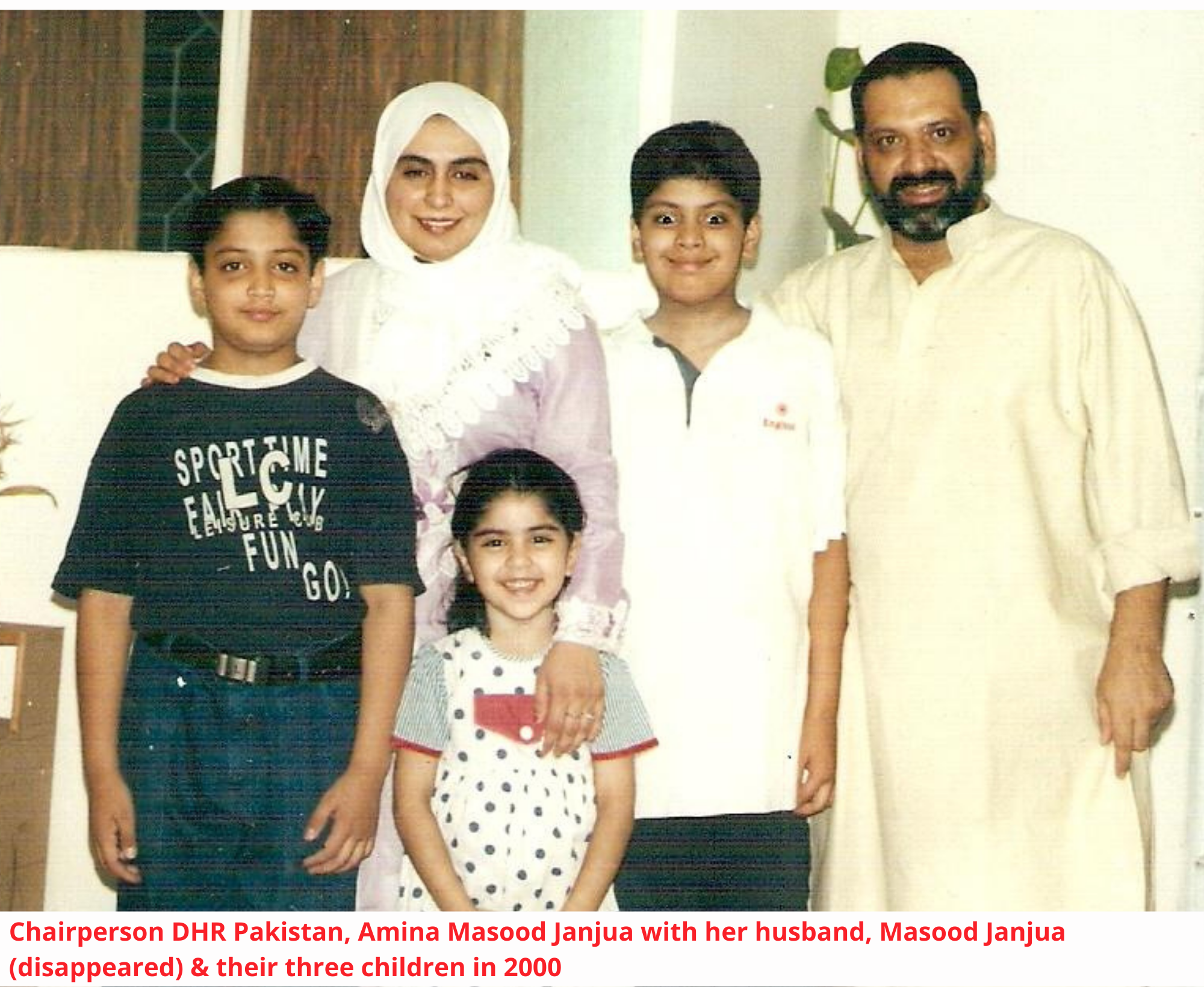“When I look back and realize that 16 years have passed since Masood’s disappearance, my nerves shatter, and the intensity of the dagger-like pain increases. However, I am also thankful that a struggle started in Masood’s name has brought thousands of previously disappeared loved ones home and united countless broken-hearted families. Every day when I hear good news, it gives me strength and courage to keep going and that is the greatest reward for me. I will never forget Masood or give up hope for his safe and sound return. I will also proudly embrace this grief – the worst torture on Earth for the rest of my life,” says the wife of Masood on the 16th year of his disappearance.
The movement of disappeared persons started with the enforced disappearance of Masood Janjua and his friend Faisal Faraz from Rawalpindi. Masood Ahmed Janjua, a businessman from Rawalpindi, “disappeared” on 30th July 2005, while traveling on a bus to Peshawar with his friend Faisal Faraz, a 25-year-old engineer from Lahore. Amina could not account for her husband’s mysterious disappearance but certain evidence convinced Amina that he had been picked up by the country’s intelligence agency. This was further established through the statement of one Dr. Imran Munir, who remained in the custody of the military. In an official statement given to the government functionaries, Dr. Imran testified that he had seen Masood Ahmed Janjua in a secret detention center.
Then, in October 2006, Pakistan Supreme Court judges began hearing Masood Janjua and Faisal Faraz’s case. Several other persons subjected to enforced disappearances testified to seeing both men in detention. Their cases are pending before the Supreme Court of Pakistan. However, State officials deny their custody and all knowledge of their whereabouts, to date.
The last update on the case of Masood Janjua came from his wife, Amina Janjua: “On 16th October 2018 while I was in Berlin attending a UDHR’s 70th-anniversary activities. A special bench heard Masood’s case and within 5 minutes, the honorable Judges transferred all the cases of Disappeared to the Commission of Inquiry.” This delaying tactic, and circular nature of justice in the country, meant that each institution will just shake off its burden. Similarly, cases in the past have bounced around different segments of the bureaucracy. Somehow, the same always ends up happening. As the maxim goes: Justice delayed is justice denied and here denial is equivalent to delay.

When a categorical order should have been passed in tracing the famous businessman and educator from Rawalpindi, the judge only comforted the petitioner that justice will be done but did not pass any order. After four days of that hearing, the judge heading the bench, Justice Ejaz Afzal, was retired from the Supreme Court.
The struggle to find the truth, justice, and freedom for Masood Janjua continues as the family, and human rights defenders remember him in the 16th year of his disappearance. The human rights community around the globe keep raising their voice in solidarity. Defence of Human Rights and the global human rights community demands immediate release and justice to Masood Janjua. Defence of Human Rights Pakistan demands from the government to end the 16 years of torture and bring back Masood Janjua. As Masood Janjua’s wife says: “I can die but not give up the struggle to trace my loving husband, Masood.”
Somehow each of us determines and chooses what we stand for – in terms of what we think is the right thing or the wrong thing. Masood Janjua’s wife has no choice in the matter – standing for what is her and her husband’s right is not a choice but a necessity. She’s conducting her life as a testimony on record for all disappeared persons.
Media Team
Defence of Human Rights Pakistan

